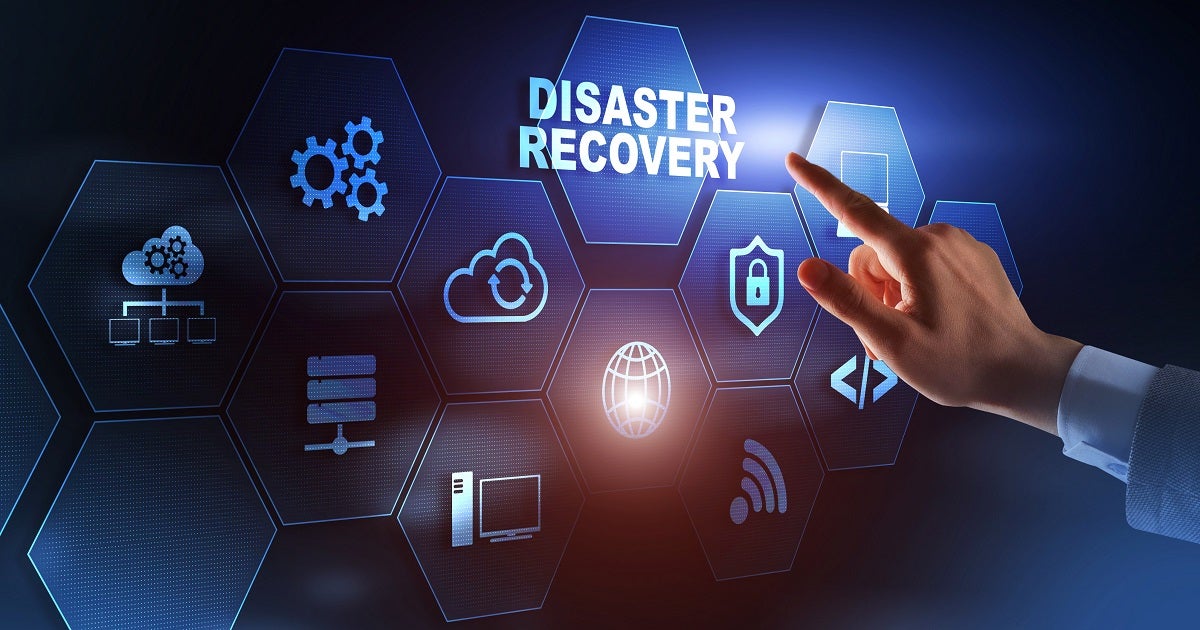The true test of any company is its ability to continue even in the face of interruption. This is why it’s important to be prepared for anything by implementing business continuity planning – or BCP.
What Is Business Continuity Planning (BCP)
Business Continuity Planning is a process that allows a business to continue operations after a major disruption. Whether it’s a cyber-attack, a natural disaster, or supply line issues.
Businesses need to be prepared to ensure that business can continue and anything compromised by the interference can be remedied. The ultimate goal of any business - big or small - is to remain competitive by retaining current customers and continuing to grow its client base. Therefore, with an effective Business Continuity Plan or BCDR (business continuity and disaster recovery) strategy in place, businesses can endure destructive situations and cyber-attacks by following the instructions set up. These can relate to human resources, assets, business processes, and business partners.

What Does Business Continuity Planning Do?
While every business has its own set of risks, there are measures we can take to reduce those risks. The primary aim of a successful BCP strategy - or business continuity plan - is to minimize potential losses to the business after any unfavorable circumstances.
Depending on the business, these losses may be:
- Legal
- Financial
- Regulatory
- Reputational
Given the possibility that businesses may experience all of the above – Business Continuity Planning is put in place. Therefore, an essential component of BCP is a Business Impact Analysis (BIA). This includes evaluating your business’s main processes, its potential weaknesses, and, ultimately, the losses you may face as a consequence. This planning will help to figure out which are the key business elements and the order in which they should be prioritized after the incident. Furthermore, with a strong BCP, you can strengthen any current vulnerabilities to improve the response to future disruptions.
Why Business Continuity Planning is Important?
Business Continuity Planning (BCP) is important because it helps organizations minimize downtime, ensure customer satisfaction, protect their reputation, comply with regulations, safeguard data and assets, ensure employee safety, and enhance overall organizational resilience. It is a proactive approach that saves businesses from financial losses and reputational damage during unexpected events.
How Does a Business Continuity Plan (BCP) Work?
Business Continuity Management (BCM) applications should be developed to protect a company’s operations. A BCM application is a software tool that allows businesses to develop a robust plan and ensures that it is used effectively.
A proper Business Continuity Plan should be broken down into steps that will ensure all your bases are covered and your company is prepared for any situation. Here are some of the steps to developing your own Business Continuity Plan:
- Evaluate the scope of your Business Continuity Plan by figuring out how big your company is and how expansion can be accommodated.
- Highlight key areas of your business that are crucial to your business.
- Determine your business’s most critical functions. These need to keep going for your business to stay running.
- Identify how specific business functions and areas are dependent on each other.
- Agree on a realistic amount of time that the business would be able to manage without each function.
- Draw up a detailed plan on how to maintain business operations in unfortunate and unexpected circumstances.
- Test your plans regularly to ensure their effectiveness. This includes simulating disruptions and assessing the impact on operations.
- Train your staff and spread awareness to ensure a quick response and minimal damage.
In addition to conducting efficient Business Continuity Planning, communication must be prioritized during both preparation and crisis management. Contact information of related partoes should be clear, and communication protocols should be established immediately so that there is no delay in implementing business continuity strategies.
How to Stay Prepared with a BCP
To ensure business continuity in times of trouble, a few general aspects should be considered when creating your Business Continuity Plan:
- Remote and Digital Workplaces: The Covid-19 pandemic taught us this all too well. The global event forced most businesses to adopt remote or hybrid working environments. Your business continuity plan should consider that employees may be forced to work from home or online.
- Data Backup and Disaster Recovery: Data being lost or services being compromised is a possibility in many disaster situations. Companies need to have effective data backup and a disaster recovery plan in place to ensure business continuity. Disaster Recovery may seem quite similar to a Business Continuity Plan at first. However, Disaster Recovery strategies focus on IT systems whereas Business Continuity Planning focuses on the entire company. Essentially, Disaster Recovery is an extension of your existing Business Continuity Plan.
- Virtual Desktop Infrastructure (VDI): A Virtual Desktop Infrastructure provides employees with remote desktop access wherever they are. This includes access to important business applications when systems are compromised or when office computers cannot be reached.
- Virtualization and Cloud Infrastructure: While this is not necessarily a viable option for all businesses, many companies can make use of the cloud to back up important data and infrastructure. This helps to minimize the risk of data loss.
- Testing Your Business Continuity Plan: Conducting secure and effective Business Continuity Planning should be an ongoing process for a business. It needs to be constantly re-evaluated as the company grows and evolves.
Business continuity planning also plays an essential role in the transformation of business environments and in protecting your company from new potential threats.
Contact Sangfor to find out how we can help you perform personalized Business Continuity Planning and ensure that your company is prepared to combat any interruptions.





